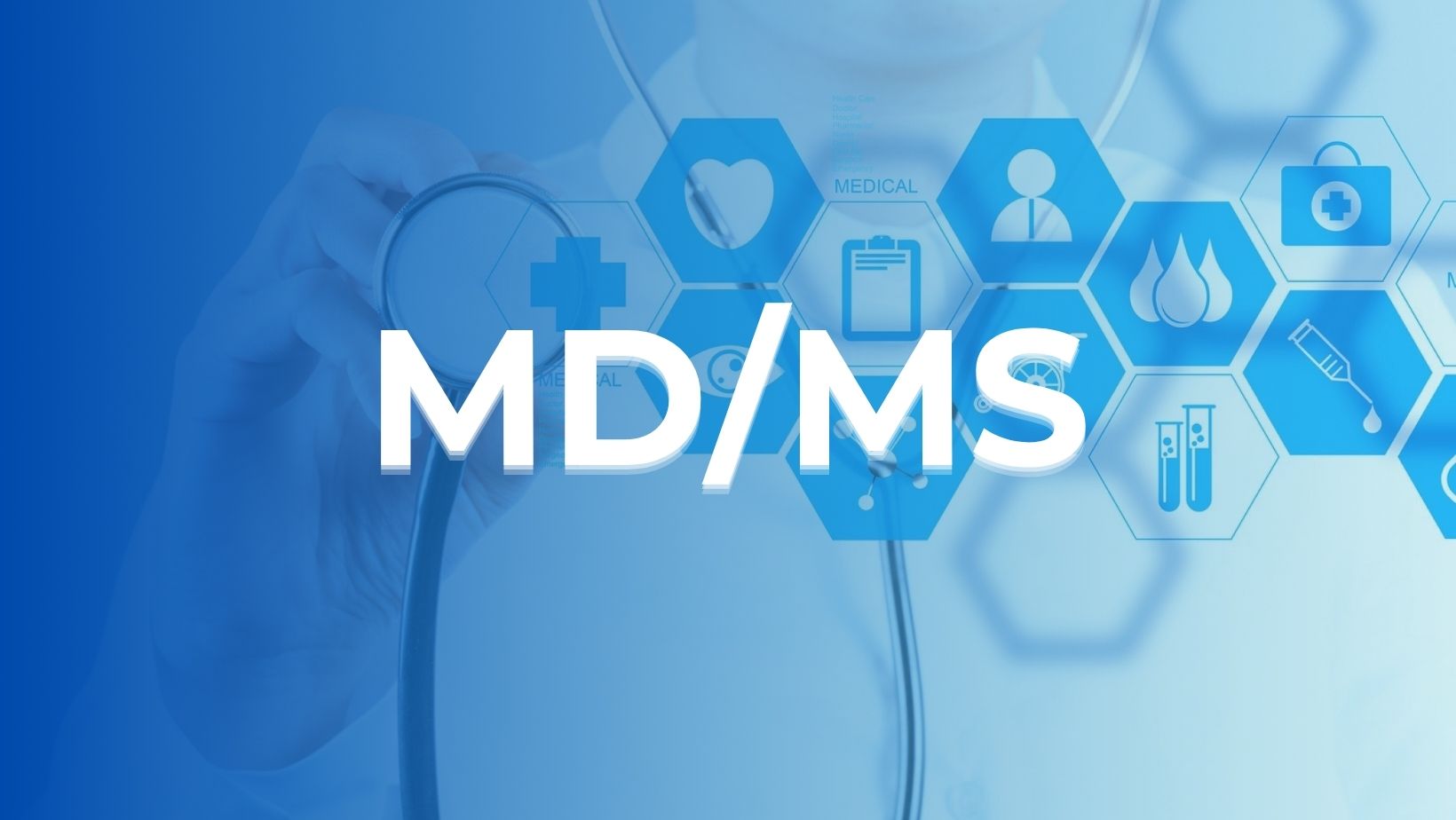
Are you an MBBS graduate looking to take the next big step in your medical career? Pursuing an MD (Doctor of Medicine) or MS (Master of Surgery) is a crucial move for those who wish to gain in-depth expertise in a specific branch of medicine or surgery. These postgraduate programs provide advanced clinical training, theoretical knowledge, and hands-on experience in specialized areas such as Internal Medicine, Pediatrics, General Surgery, Orthopedics, and more. Earning an MD or MS boosts your medical expertise while opening doors to better-paying jobs, teaching roles, research opportunities, and leadership positions in healthcare.
MD and MS are postgraduate medical degrees pursued after completing MBBS.
These programs prepare students to become experts in their respective fields, enhancing their ability to diagnose complex cases, perform specialized procedures, and contribute to academic or clinical research.
Both MD and MS courses are of 3 years duration. During this period, students undergo advanced theoretical learning, attend clinical rounds, perform medical procedures under supervision, and submit a dissertation or thesis at the end of the program.
|
Component |
Details |
|
Degree Type |
Postgraduate (PG) |
|
Duration |
3 Years |
|
Eligibility |
MBBS + Internship Completion |
|
Regulatory Body |
National Medical Commission (NMC) |
Pursuing an MD (Doctor of Medicine) or MS (Master of Surgery) after MBBS allows you to specialize in a specific area of medicine based on your interests and strengths. Whether you aspire to become a cardiologist, neurologist, gynecologist, orthopedic surgeon, or pursue fields like pediatrics, dermatology, or general surgery, these degrees provide the advanced knowledge and clinical skills needed for professional expertise and improved patient care.
An MD/MS enhances your career opportunities in both government and private healthcare sectors. With specialization, you can work as a consultant, senior resident, or even start your own medical practice. These qualifications often lead to higher salaries, leadership roles like department head, and more career stability in reputed institutions.
MD/MS also opens doors to teaching and research roles. Many specialists go on to become faculty members in medical colleges or contribute to clinical research. It also acts as a gateway to super-specialization programs such as DM or MCh, helping you gain deeper expertise in a sub-specialty.
Having an MD/MS increases your credibility and standing in the medical community. It boosts patient trust, peer recognition, and gives you an edge in India’s competitive healthcare system. This qualification often positions you as a leader or expert in your field, leading to professional growth and respect.
Candidates must have an MBBS degree from a recognized institution and must have completed the mandatory one-year internship, which provides vital hands-on clinical experience across multiple departments.
Applicants must possess a valid permanent or provisional registration certificate from the National Medical Commission (NMC) or a State Medical Council, confirming their eligibility to practice medicine in India.
Admission to MD/MS is based on the NEET-PG exam, conducted annually by the National Board of Examinations (NBE). This national-level exam assesses the candidate's understanding of the MBBS curriculum. Selection is based on merit, with different cut-offs for categories such as General, OBC, SC, and ST. A higher NEET-PG rank increases your chances of securing a seat in reputed institutions.
|
Criteria |
Requirement |
|
Qualification |
MBBS + 1-year Internship |
|
Registration |
NMC or State Medical Council Registration |
|
Entrance Exam |
NEET-PG |
|
Minimum Score (General) |
50th Percentile in NEET-PG |
|
Minimum Score (Reserved) |
40th Percentile in NEET-PG |
|
Step |
Description |
|
Step 1 |
Register and appear for NEET-PG |
|
Step 2 |
Qualify with required percentile |
|
Step 3 |
Participate in MCC/State counseling |
|
Step 4 |
Allotment based on rank and preferences |
|
Step 5 |
Document verification and fee submission |
Before final admission, you need to present the following documents at your allotted college for verification:
|
Document |
Purpose |
|
MBBS Degree & Mark Sheets |
Proof of academic qualification |
|
Internship Completion Certificate |
Confirms eligibility for PG programs |
|
NEET-PG Scorecard |
Admission basis |
|
NMC/State Medical Council Certificate |
Registration proof |
|
ID Proof (Aadhar/PAN/Passport) |
Identity verification |
|
Passport-size Photographs |
Official admission records |
|
Allotment Letter (from Counseling) |
Seat confirmation |
Ensure that you carry both original documents and photocopies for submission and verification.
Pursuing an MD or MS degree in India is a prestigious and career-defining step for any MBBS graduate. These programs not only allow you to specialize in your area of interest but also enhance your career stability, reputation, and income prospects. Whether your goal is clinical practice, academic medicine, or research, MD/MS will set you on the right path.
Stay focused on your NEET-PG preparation, make informed choices during counseling, and complete all documentation on time. With dedication and clarity, you’ll be well on your way to becoming a successful medical specialist in India.